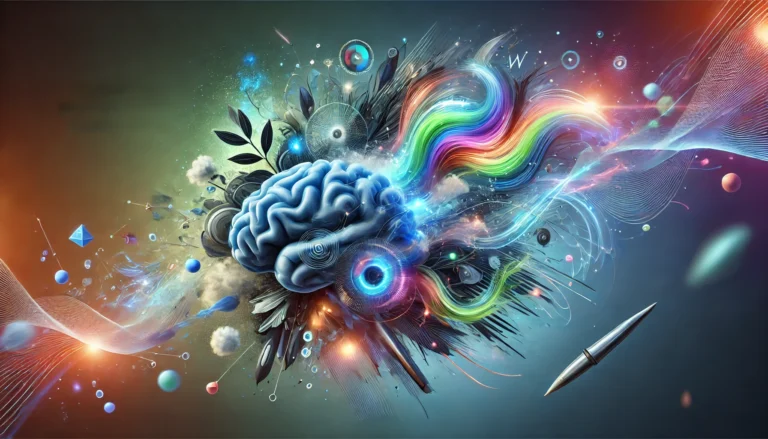5 Ways Generative AI is Changing the Future of Work — And Why Mental Wellbeing Must Be a Priority
The rise of Generative AI has transformed work environments, creating both unprecedented opportunities and new pressures. As AI takes on more tasks, it’s easy to overlook a critical factor in the workplace: our mental wellbeing. Beyond the technical benefits, there’s a profound need to safeguard our human resilience as we move forward.
Here are five ways Generative AI is changing work, and why nurturing mental wellbeing must be a central priority for us all.
1. AI Boosts Productivity — But at What Emotional Cost?
AI can take over many of our tasks, making us more productive. But as we clear our to-do lists faster than ever, the expectation to constantly perform increases. The pressure to continuously deliver, without adequate mental rest, can leave us feeling emotionally depleted.
Risk: Constant productivity without rest can lead to emotional exhaustion and feelings of inadequacy when we don’t match AI’s efficiency.
Empathetic Solution: Recognise that you are not a machine. Set realistic boundaries, and give yourself permission to pause and recharge. Mental wellbeing isn’t about maximising output — it’s about staying connected to your emotional needs.
2. AI Creates New Roles — But It Can Also Create Self-Doubt
Generative AI is reshaping the job market, bringing new roles and skills into the spotlight. While exciting, the constant need to learn and adapt can stir up feelings of self-doubt, especially when we question if we’re keeping pace with rapid technological change.
Risk: Feeling left behind or struggling to upskill can diminish confidence and fuel anxiety, especially when AI seems to be progressing faster than we can.
Empathetic Solution: Embrace the learning curve with self-compassion. It’s okay not to know everything. Seek support from communities or peers who are on the same journey, and celebrate the small wins along the way. Remember, mental wellbeing is about progress, not perfection.
3. AI Enhances Decision-Making — But Disconnects Us from Our Intuition
With AI tools offering powerful insights and recommendations, it’s tempting to rely heavily on them for decision-making. But as we lean on AI for answers, we risk losing touch with our own intuition and emotional intelligence — key components of our mental resilience.
Risk: Over-reliance on AI can weaken our ability to trust our instincts and navigate complex emotional situations without digital assistance.
Empathetic Solution: Trust yourself. Take a moment before rushing to AI for answers — reflect on your own experiences, emotions, and gut feelings. True leadership and creativity come from a balance between data and human insight.
4. AI Connects Us Digitally — But We Need Real Conversations
AI-driven chatbots and virtual assistants make communication efficient, but human connection goes beyond efficiency. Relying on AI to manage interactions can lead to a loss of genuine connection, leaving people feeling isolated in an increasingly digital world.
Risk: Lack of authentic human connection can lead to loneliness, even in highly connected environments, impacting overall mental wellbeing.
Empathetic Solution: Prioritise human conversations. Whether it’s virtual or in person, take time for real discussions that go beyond work tasks. A coffee chat, even if remote, can foster deeper relationships that support mental resilience.
5. AI Encourages Intellectual Growth — But We Must Protect Our Cognitive Future
Generative AI can handle data, analyse patterns, and even create content. But when we allow AI to do all the thinking for us, we risk stunting our intellectual growth, especially over time. Future generations could grow up dependent on AI, losing the mental sharpness that comes from critical thinking and problem-solving.
Risk: The long-term consequence of over-reliance on AI could be a decline in human intellect, creativity, and the ability to solve complex problems without digital assistance.
Empathetic Solution: Cultivate your intellect. Deliberately engage in activities that challenge your mind — whether it’s reading, solving puzzles, or learning new skills outside the AI domain. Protecting our cognitive future means balancing AI’s benefits with active mental engagement.
The Bottom Line
Protecting People’s Mental Wellbeing in an AI-Driven World
As AI reshapes our work, our mental and emotional wellbeing must remain at the forefront. We are more than just cogs in a machine, and we cannot let AI outpace our humanity. By prioritising mental wellbeing, nurturing real connections, and protecting our cognitive abilities, we ensure that AI serves us — not the other way around.
Stay Connected
In a world powered by AI, how are you staying connected to your own wellbeing? Let’s open up the conversation — your thoughts and stories could help others who are navigating the same journey.



